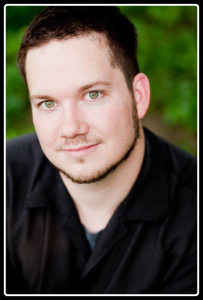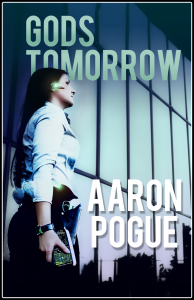 I started the week with the story of my lonely, zombie Christmas. Some of you might have guessed where the series was going based on comments I’ve made before — that writing is a really lonely profession. More of you might have figured it out by looking at the series title, “On Collaborative Writing.”
I started the week with the story of my lonely, zombie Christmas. Some of you might have guessed where the series was going based on comments I’ve made before — that writing is a really lonely profession. More of you might have figured it out by looking at the series title, “On Collaborative Writing.”
That’s what I want to talk about this week. I’ve brought it up before, because it’s a process that fascinates me. I’m not sure how someone goes about collaborative writing, but I’ve never let that stop me trying.
I brainstormed a long-running high fantasy series with one of my best friends. We put in many long hours figuring out the world, the characters, the epic history and the individual storylines that would make up actual books. We never wrote a word, but we spent a lot of time on collaborative imagining.
I pitched an idea to Courtney, too, most of a year ago. I suggested we write a spontaneous action/adventure title (which I strongly suspected would become urban fantasy, given our backgrounds).
My suggestion was that I would write a whole scene as intense and exciting as possible, then hand it off to her and her first job would be to rewrite that scene to make it even more exciting, and then write a following scene just as exciting as her rewrite. Then she’d give it to me, and I’d make that one more exciting, before writing my own.
That way, we could leap-frog our way to an end product that Vin Diesel would be proud to star in. How could it go wrong?
That’s still on the back burner, because we’re both far too busy with our own commitments. We’re juggling several books constantly. Neither of us really needs a new project.
Good Ideas
And that’s where I got the idea for another approach to collaborative writing. Actually, it was two things: that, and a girl I met in my Category Fiction class at OU last fall. We became pals, and (as I sometimes do) I decided to read through her blog to get a better idea who she was.
She’s a writer, with a deep love for the storytelling process and an old longing to be a novelist. Her one big foray into noveling so far didn’t go too well, though, and she’s said frequently she doesn’t have the creativity to dream up the intricate, engaging storylines she loves so much.
Writing coach that I am, I couldn’t let that go. If someone wants to be a novelist, she should become a novelist. After all, it’s going to make her a better person, too. That’s too much to give up over a little thing like not-having-any-idea-what-to-write-about.
Prewriting Packages
Now, me? I’ve never had that problem. I’m at the other end of the spectrum. I have so many story ideas I can rarely finish writing a book before I’m sidetracked onto a new one. It’s a problem. In fact, it’s precisely the problem I opened with. I’ve got too many good story ideas to ever get around to writing them all.
The Ghost Targets series alone represents 25 novels (of which only four are written). On top of that, I’m working on reviving my fantasy franchise, which represents at least two dozen plotted novels (of which, once again, four are already written). Then there’s Sleeping Kings, the world of Auric, my CCC project, my new high sci-fi projects, and on top of all that, I made up three brand-new standalone novel ideas in the last six months that are all three perfectly golden.
On my own, I’ll never touch them. Or…well, not for a long time anyway. And if you’ve been around for a while, you know what I do to capture a brilliant story idea and save it against the day I actually have time to work on it.
Detailed, detailed prewriting packages. All the stuff we talked about last October. It does take some serious time, but it’s worth doing. I’ve now got prewriting packages nearly done for all three of those storylines, and as I was thinking on Jena’s creativity problem, it occurred to me that I had a potential solution right there in front of me.
Writing the Middle
So I extended the offer to her (no idea if she’ll be interested), and I’m extending it to you, too. I’ve built some good, quality stories, but I don’t have time to do the actual writing. If someone wanted to do that, though — with no more pressure to perfect it than you’d expect for any given first draft — they could start with one of my prewriting packages, build a draft for me, and then I could do the rewrite on it.
I know that won’t appeal to everyone. Some people love the thrill of discovery, or making up the plot as they go along. For someone who just wants to work on a writing project, though — especially someone who feels a little new and is looking for a learning opportunity — this could be a great experience.
If you’re at all interested, come back tomorrow and we can discuss it more. I’m going to post a short synopsis for each of the projects currently ready, and say a few words about how it would actually work. See you then!









